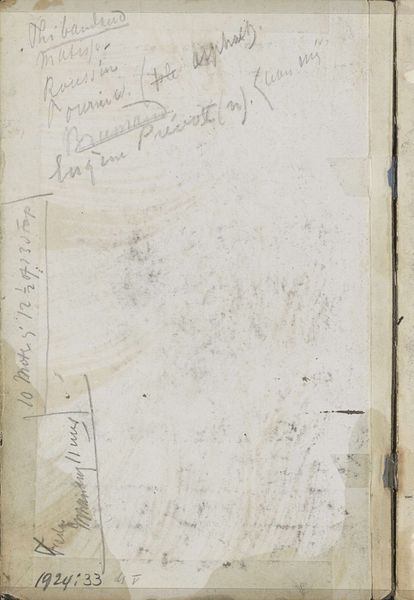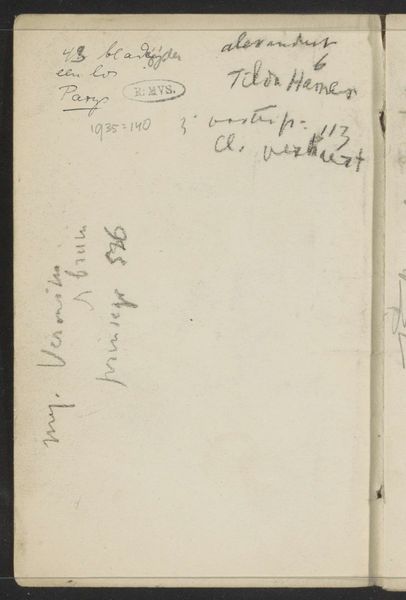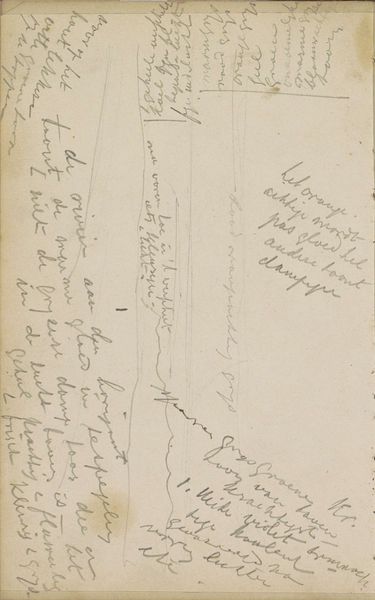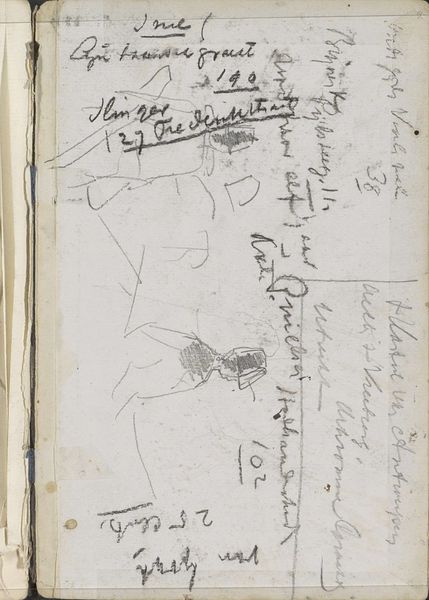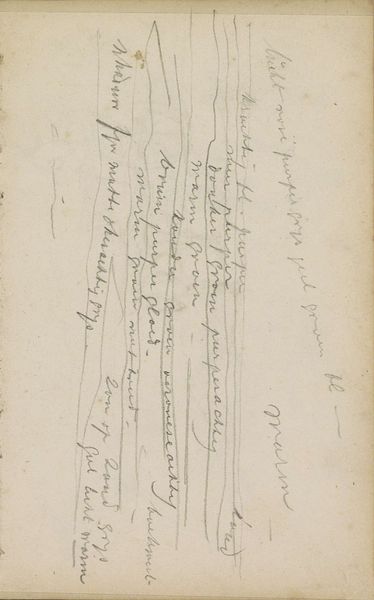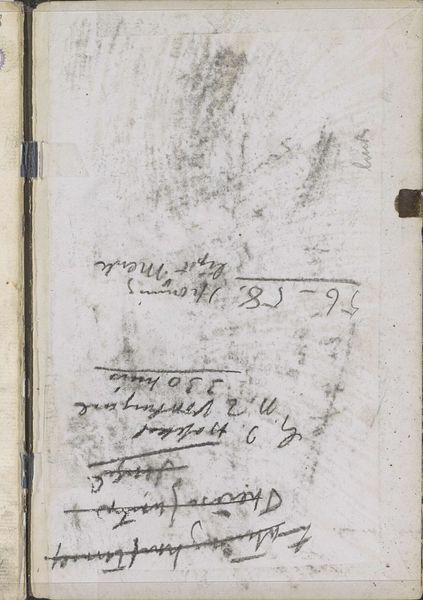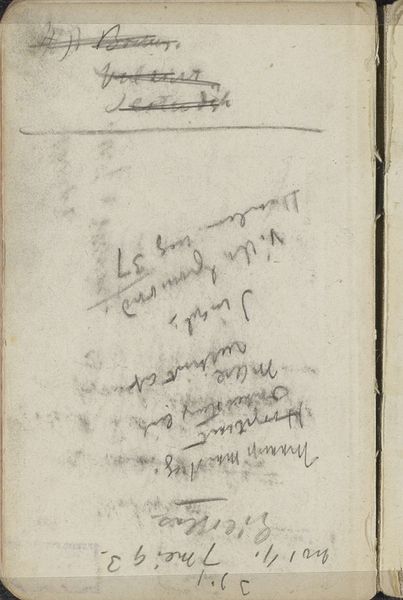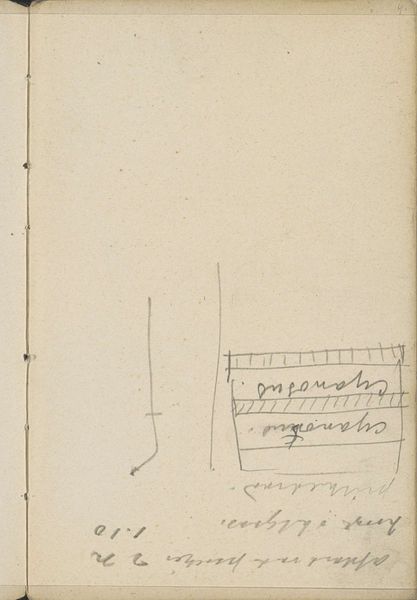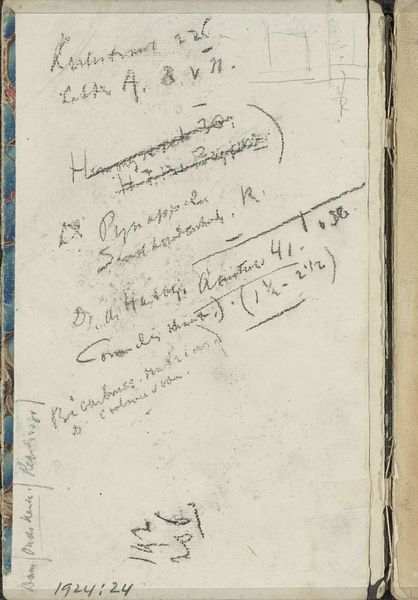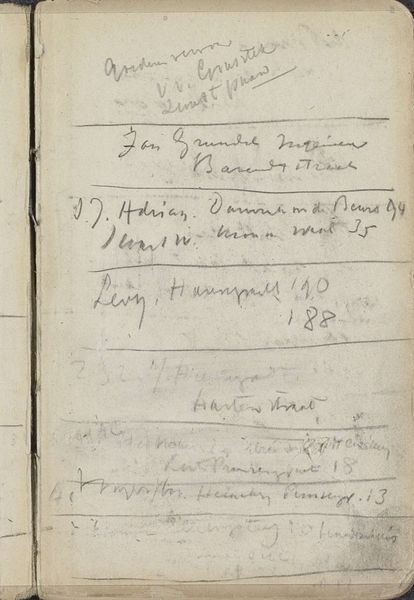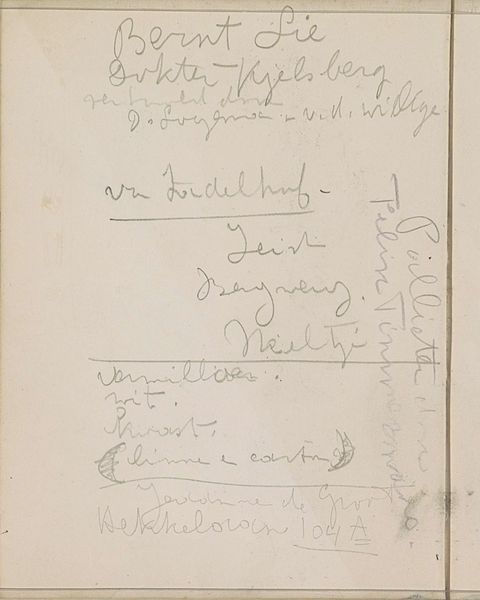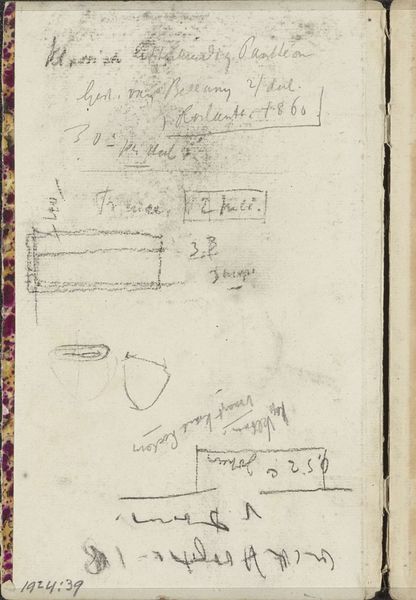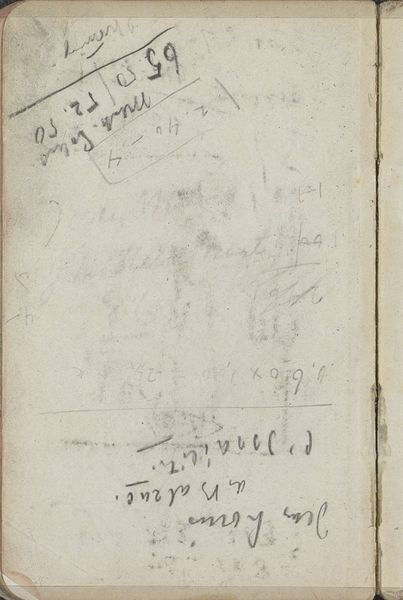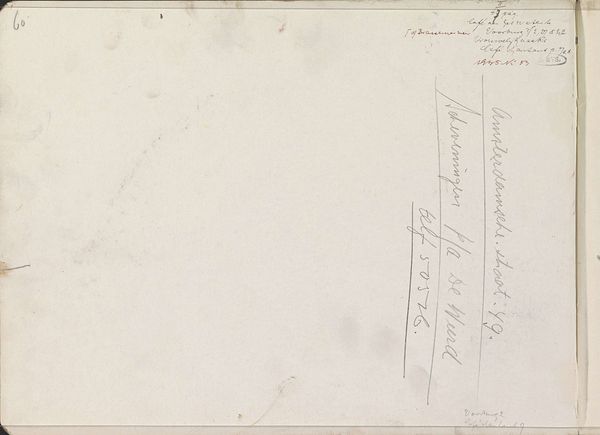
drawing, paper, pencil
#
drawing
#
aged paper
#
toned paper
#
sketch book
#
hand drawn type
#
paper
#
personal sketchbook
#
sketchwork
#
pencil
#
sketchbook drawing
#
storyboard and sketchbook work
#
sketchbook art
#
watercolor
Copyright: Rijks Museum: Open Domain
Editor: Here we have George Hendrik Breitner's "Studie" from 1893, a drawing on paper held at the Rijksmuseum. It seems like a page torn straight from a sketchbook, filled with hurried notations. What do you see in this piece that helps us understand its significance? Curator: Beyond the apparent casualness, this drawing offers a glimpse into the artist's process and the cultural milieu that shaped him. Breitner was known for capturing the dynamism of Amsterdam, and these sketches, seemingly random, point to a deep engagement with his surroundings. Editor: In what way? The image itself seems a bit cryptic. Curator: Well, consider how sketchbooks themselves functioned within the artistic training of the time. They weren't merely for preliminary doodles; they were portable archives of observations. Look at the addresses and names jotted down—they speak to social networks and potential subjects or patrons. The “Chef is wyverhes,” the chief is…weaving? What can you infer from that note? Editor: Maybe he was considering depicting workers, ordinary life? Something different from traditional landscapes or portraits? Curator: Precisely. And what does it mean for art to engage with these themes? To move beyond the established norms and represent daily realities and people previously ignored in formal art? How did shifts in technology like photography further compel such a turn in the arts? These seemingly disjointed sketches open up those larger historical questions. Editor: So, it's less about the finished artwork and more about the context surrounding its creation and the societal factors that made this kind of work possible. I’m learning so much today. Curator: Yes, seeing a sketch, you learn the artist did not simply wake up one day with a finished painting, rather art always requires social, political and cultural development.
Comments
No comments
Be the first to comment and join the conversation on the ultimate creative platform.
